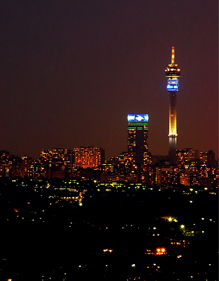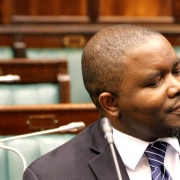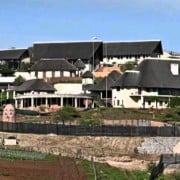|
Getting your Trinity Audio player ready...
|
 On 14 August the public protector launched her annual stakeholder dialogue, with the aim this year of building stronger working relations between her office and other organs of state. The 2014 theme is Joining hands in a partnership against maladministration and corruption.
On 14 August the public protector launched her annual stakeholder dialogue, with the aim this year of building stronger working relations between her office and other organs of state. The 2014 theme is Joining hands in a partnership against maladministration and corruption.
Speaking at the Wits Business School, Thuli Madonsela remarked that the timing of this year’s programme coincided with a new administration. "New beginnings are always the best time to set the ground rules. If we work together against maladministration and corruption we can make sure our state is accountable and responsive to the needs of its people."
She said it was crucial that the state is seen to not be part of the problem, but rather part of the solution.
Gauteng premier David Makhura, Gauteng’s speaker in the provincial legislature, Ntobi Mekgwe, and Johannesburg executive mayor Parks Tau also took part in the panel discussion.
“There have been significant improvements in addressing issues of clean governance in the past twenty years, but we still have a long way to go," said Makhura. “We will not succeed in curbing corruption if we do not work with chapter nine institutions like the public protector and the auditor-general.”
He told Madonsela that he aimed to cut by half the number of issues that she receives regarding his office. “Most of the issues that come to you … just need our will to act. Sometimes we’re not humble enough to admit when we are wrong.”
Getting in touch with important issues
During the course of the programme Madonsela will engage with parliamentary portfolio committees; mayors and municipal managers; accounting officers and legal advisors; ministers; provincial executive councils and legislatures; other public servants; and the media.
The programme will also explore ways in which service delivery could be accelerated.
After the event Madonsela took part in an outreach opportunity in Soweto, where thousands of residents came to air their grievances on matters such as police conduct, RDP housing irregularities, and service delivery.
Tau had announced earlier at the event that the City of Johannesburg is setting up an ombudsman’s office to deal with service delivery complaints. The ombudsman is expected to take some of the burden off the public protector’s Gauteng branch.
Citizens unhappy with government
The results of the 2013 Quality of Life survey, carried out by the Gauteng City-Region Observatory (GCRO), were made known at the same time. The GCRO is a research partnership between the Gauteng provincial government, Wits University and the University of Johannesburg.
The survey revealed, among other facts, that 89% of the 27 490 respondents, from Gauteng’s 10 metro areas – and mainly residing in Johannesburg, Ekurhuleni and Tshwane – were concerned about the threat that corruption poses to democracy. Another concern raised was that there were “very low levels of satisfaction with government and governance, indicating that service delivery alone is not enough”. In fact, the survey has recorded the highest levels yet of mistrust of all spheres of government.
Responding to this, Makhura said that the integrity management office – currently being established as part of the provincial government’s new strategy of integrity promotion – will “help us in preventing many issues of corruption in our government. Our approach in dealing with corruption is to prevent public funds from getting lost.”
The provincial government has decided to open up the tender process to public scrutiny, thereby improving transparency and curbing corruption. To this end it’s set up two pilot sites, located in the provincial treasury and the roads and transport department. This new approach will cut down on the chances of undeserving bidders winning profitable contracts.








